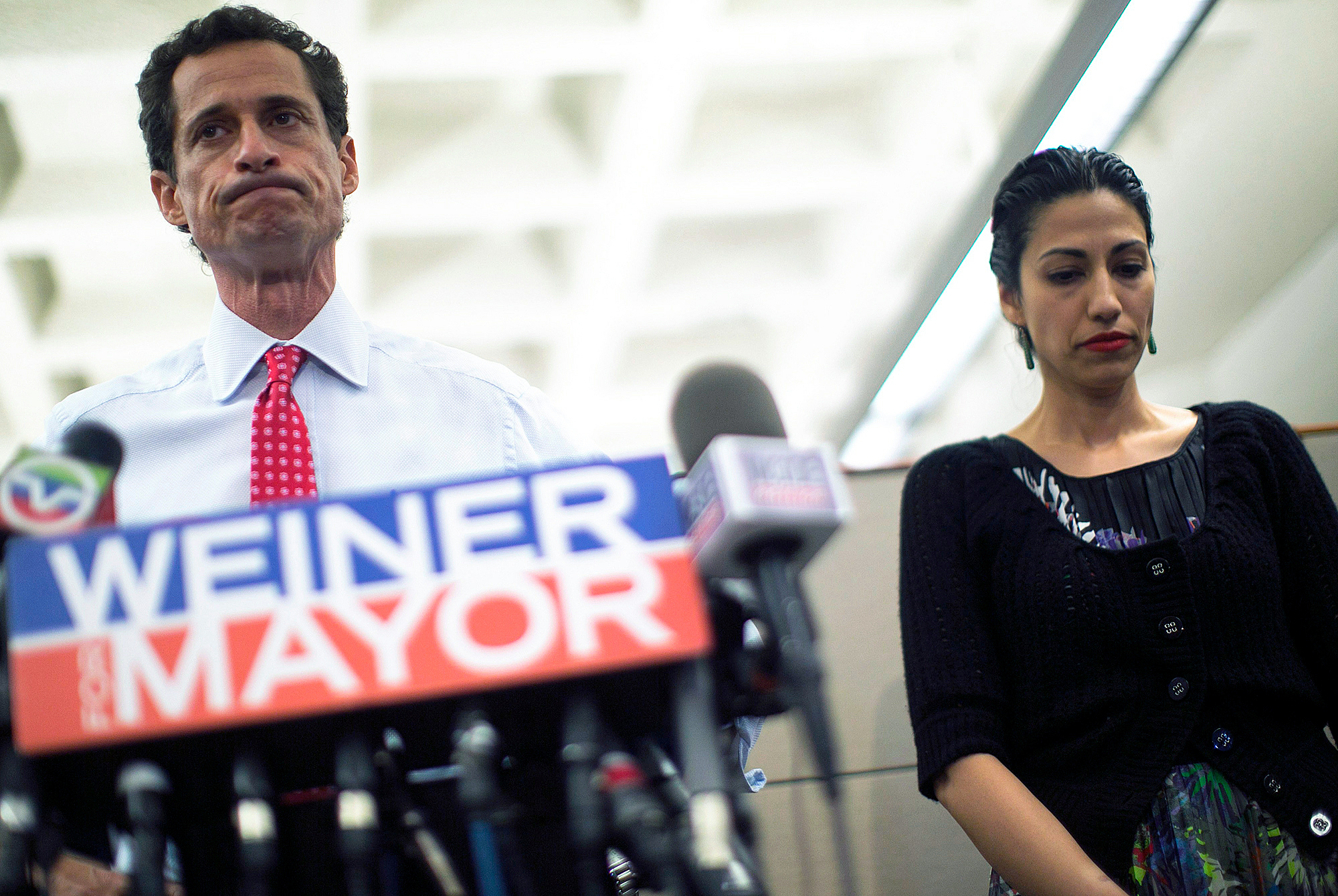Even the title of the documentary is a punch line. It could’ve been given a tragic title like The Last Crusade, or something soberly ironic like Public Service, or maybe the Raymond Carver-esque You Would Know If This Was Your Underpants (taken from perhaps the greatest thing Wolf Blitzer ever said to anybody on CNN). But no, the documentary is called Weiner, and its title character is just going to have to live with that. As he will have to live with many things for the rest of his life.
Anthony Weiner is a former seven-term U.S. representative (a New York Democrat) whose career collapsed after a 2011 sexting scandal. He sent indelicate messages to women who were not his wife, some of which included explicit photographs of himself, or parts of himself. Before the scandal broke, Weiner was a lively—indeed fiery—congressman, prone to splendid displays of temper on the House floor. He was also a reliably eloquent and bellicose guest on cable-news shows.
Weiner picks up in 2013 when its subject is running to be mayor of New York City. The expectation that voters will again consider him for public office so soon after his disgrace reeks of hubris. But it’s perfectly in character for Weiner, who seems to court public mortification (see also the fact that he agreed to participate in this documentary) while underestimating the effect of the fallout from his behavior on the people around him. In the course of the mayoral campaign, some of his impressive debating skills came to the forefront, and at one point he actually led the race, bygones apparently being bygones. Then the scandal came back.
Filmmakers Josh Kriegman and Elyse Steinberg got remarkable access to Weiner during the campaign, and—to the politician’s credit—he allowed them to keep hanging around during some unbelievably cringey moments. Even more credit goes to Weiner’s wife, Huma Abedin, a special story in her own right. A top staffer to Hillary Clinton, Abedin has been close to power for years now, and is generally regarded as one of the more influential Muslim-Americans around. Her match with Weiner might have been the occasion for a Bridget Loves Bernie-style TV reality series: What happens when a charismatically hotheaded Jewish congressman marries a preternaturally calm Muslim power broker? Could the real bilateral treaty be … love? Instead, Abedin (pregnant during the 2011 debacle) became one of those wives who stand by their husbands during awkward press conferences in which reporters ask questions about underpants.
The documentary captures the charged atmosphere in campaign offices and the Weiner household. One horrifying sequence unfolds on election night, when one of Weiner’s sexting partners decides to show up at his campaign party, cameras in tow. Is there something to be learned from this spectacle? Weiner doesn’t settle on blaming social media, thankfully. Journalists, from cable-news sensationalists to the bizarrely personal outrage of press-conference reporters, don’t come off too well. Weiner, to his credit, repeatedly and forcefully assumes responsibility for the mess. Still, he resists the filmmakers’ attempts at analysis, wondering why their definition of “fly-on-the-wall” moviemaking includes pointed questioning of the man on camera.
The film’s saddest moments are those that showcase Weiner when he isn’t addressing the scandal. We see an articulate, well-informed fighter who isn’t afraid to ruffle feathers. He might have been a pretty good mayor, after all. These contradictions, on full view in Weiner, will rekindle our periodic head-scratching about how spectacularly ambitious, talented people invariably seem to have equally spectacular personal failings.
Documentaries rarely solve that kind of puzzle; to edge closer to insight, we need something like the Philip Roth line (in his novel The Human Stain) that in the wake of the Monica Lewinsky affair could have been draped on a banner across the White House: A HUMAN BEING LIVES HERE. Journalism and documentaries have never been great at cracking the paradox of human nature. For that, we still need artists.
film@seattleweekly.com








